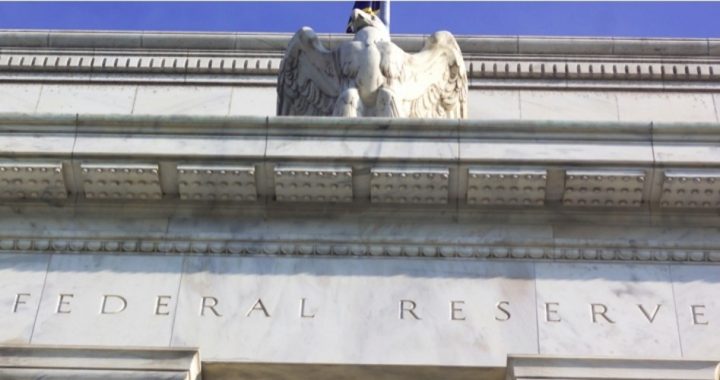
The announcement by the Federal Reserve on Monday afternoon that it would expand its efforts to “support” the economy by buying individual corporate bonds cheered Wall Street, which rebounded nearly 1,000 points on the news.
The fact that Fed officials voted unanimously for the extraordinary expansion of Fed powers suggests a degree of panic that the government shutdown of the economy using the COVID-19 virus as an excuse was also likely to shut down the $9.6 trillion corporate debt market as well.
For more than 100 years (the Fed began operations in 1914), the Fed has slowly expanded its powers in response to various dangers and threats, both real and imagined. But now it has so expanded its powers that observers are describing the Fed as “historically aggressive,” expressing “fears of overreach” and a possible “mistake” of gigantic proportions.
On March 23, the Fed saw that highly rated bonds of major U.S. companies weren’t being traded for fear that even those companies would be forced to default on making their interest payments. And so the Fed announced its extraordinary plan to “back up” the bond market by saying it would buy up exchange-traded bond funds directly. In April, the Fed expanded its authority into buying up junk bonds. And Monday’s announcement follows logically: The Fed will now buy up any bond (with certain limitations, of course, subject to change) of any company that appears to be in trouble.
This will save the banking system, as the banks that created the Fed a hundred years ago saw that their banking practices (i.e., fractional-reserve banking instead of 100-percent reserve banking) would otherwise inevitably lead to destruction over which they individually had little control.
And so now the Fed announces that it will “begin buying a broad and diversified portfolio of corporate bonds to support market liquidity and the availability of credit for large employers.”
What this announcement does is encourage “zombie” corporations which couldn’t sell bonds because of their clear inability to service them to issue new debt which, with the Fed’s “backstop,” can now be considered investment-grade by Wall Street.
In effect, the Fed has now become the bond market, and all securities bought and sold in that market are now rated AAA.
It’s all done deliberately in order to reduce those service costs (interest charges) in order to make unprofitable companies profitable. It also invites investors to purchase bonds of poorly-run companies, knowing that if they fail, the Fed will step in and make them whole.
This, in effect, removes the need for credit-rating agencies, whose job in the past was to provide investors with information about the credit-worthiness of companies before they invested in them. Now, it won’t matter: They’re all credit-worthy, thanks to the Fed.
Most investors don’t care. The 45-percent rise in the stock market since March 23 has warmed their hearts and repaired their portfolios.
What happens next? The Fed has already announced a program to buy up the bonds of cities, municipalities, and states that otherwise are a drag on the market. This is how the Fed plans to bail out states such as Illinois, whose finances are such a mess that the bond market isn’t readily available to them.
It’s taken more than 100 years. But it was foreseen from the start: The Fed would be the ultimate backstop to keeping banks and issuers of low-grade high-risk debt from suffering the consequences of poor management and bad decisions.
Image: amedved/iStock/Getty Images Plus
An Ivy League graduate and former investment advisor, Bob is a regular contributor to The New American, writing primarily on economics and politics. He can be reached at [email protected].
Related article:




